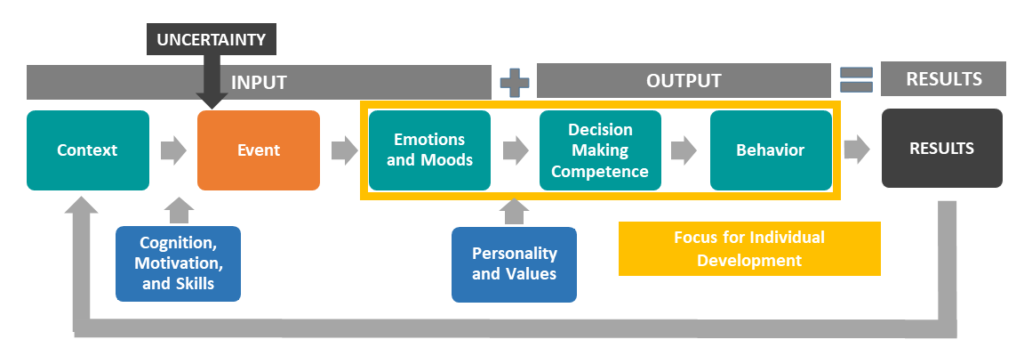Many studies have demonstrated that an individual’s expertise and knowledge, cognitive ability, personality, and values can predict they way they will fit and perform in a particular job. It's become commonplace to consider these attributes in hiring practices.
However, since cognitive ability, personality, values, and attitudes are often ingrained by the time an individual has matured into an adult, these individual qualities can be difficult to develop or change. While it's invaluable to understand the way I am today, it's far better to understand the way I can be, and even more important, how to get there.
That's why we set out to study how an individual's unique attributes--including their personality, emotions, and moods--interact within their specific business context to drive their decisions and behavior, and the consequences these behaviors have for actual performance results, such as sales growth and overall financial performance.
The good news is that decision making skills can be learned and behavioral habits can be changed, if an individual is motivated.
Building on our proprietary research, our products begin by helping managers understand their own individual mix of personality, emotions, and decision making biases. By creating awareness, we motivate managers to learn and change the things they can. We don’t force them to do a “makeover;” instead, we teach them to use their unique traits to inform and shape their decisions.
We then focus on training managers to strengthen output skills—decision making competence and leadership behavior—to improve their end results. Our individualized feedback supports them with an achievable action plan for changing habits and strategies that will improve their decision making and leadership skills. We then follow up to assess their skills “before” and “after,” so managers can see and be encouraged by tangible, measurable improvement.
In short, our products are designed to help competent and principled managers move from good to great, faster than they could without us.
info@itdassessments.com
+1 888 316 8307
The Integrated Leadership Model

